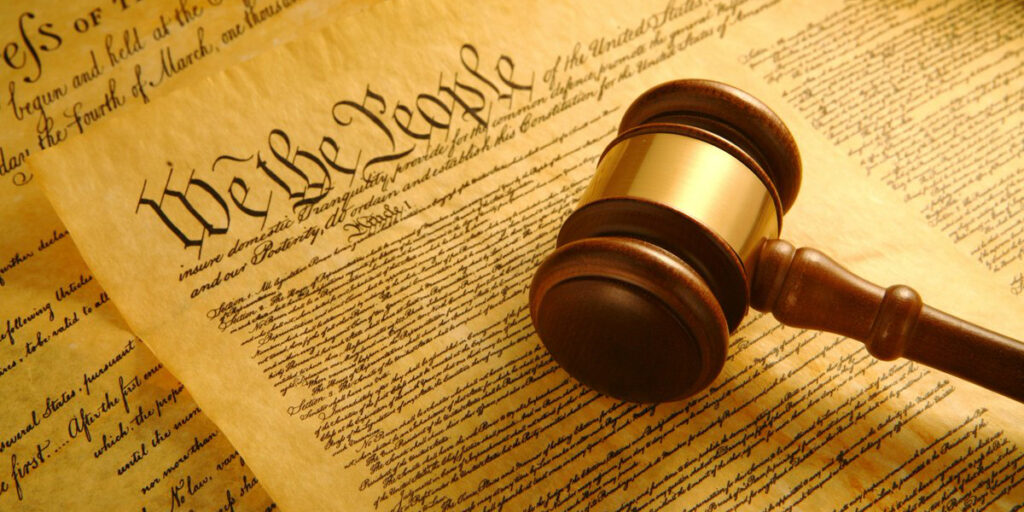Constitutional law forms the foundation of a nation’s legal system, defining the framework and principles that govern the relationship between the government and its citizens. It establishes the fundamental rights and freedoms of individuals, outlines the structure and powers of government institutions, and ensures a system of checks and balances. This article explores the significance of constitutional law, its key components, and the role it plays in protecting rights and upholding the rule of law.
Introduction: The Importance of Constitutional Law
Understanding Constitutions: Written and Unwritten
Constitutional Rights and Freedoms
Separation of Powers: Executive, Legislative, and Judicial Branches
Checks and Balances: Preserving Accountability
Constitutional Amendments: Adapting to Changing Times
Judicial Review: Safeguarding Constitutional Validity
Constitutional Law and Individual Rights
Constitutional Law and Government Powers
Constitutional Law in International Context
Conclusion
FAQs
Introduction: The Importance of Constitutional Law

Constitutional law is of paramount importance as it sets the fundamental principles and rules by which a nation is governed. It provides the framework for the exercise of government powers, safeguards individual rights and freedoms, and ensures the rule of law. By establishing the legal foundation of a country, constitutional law shapes the relationship between citizens and the government, promoting stability, accountability, and the protection of fundamental rights.
Understanding Constitutions: Written and Unwritten
Constitutions can be classified as written or unwritten. Written constitutions are explicitly documented and codified in a single written instrument, such as the United States Constitution. Unwritten constitutions, as seen in countries like the United Kingdom, rely on a combination of statutes, legal conventions, and historical principles to define the governance structure. Regardless of their form, constitutions serve as a binding source of law that governs the nation.
Constitutional Rights and Freedoms
One of the primary functions of constitutional law is to protect and uphold the rights and freedoms of individuals within a nation. Constitutional rights often include fundamental liberties, such as freedom of speech, freedom of religion, the right to privacy, and equality before the law. These rights provide citizens with legal protections against government intrusion and ensure their participation in the democratic process.
Separation of Powers: Executive, Legislative, and Judicial Branches
Constitutional law establishes the principle of the separation of powers, dividing governmental authority among three branches: the executive, legislative, and judicial. The executive branch is responsible for implementing and enforcing laws, the legislative branch formulates laws, and the judicial branch interprets and applies laws. This separation ensures a system of checks and balances, preventing any one branch from acquiring excessive power.
Checks and Balances: Preserving Accountability
In constitutional law, checks and balances are mechanisms that promote accountability and prevent the abuse of power. Each branch of government is granted certain powers to oversee and constrain the actions of other branches. For example, the executive branch may veto legislation passed by the legislative branch, and the judicial branch can declare laws or executive actions unconstitutional. This system ensures a balance of power and prevents the concentration of authority in a single branch.
Constitutional Amendments: Adapting to Changing Times
Constitutions often include provisions for amendment to allow for changes and adaptations over time. Constitutional amendments require a defined process, such as approval by a legislative body or a referendum, to ensure the stability and integrity of the constitution. This flexibility allows constitutions to reflect societal progress, evolving values, and emerging challenges without compromising the fundamental principles on which they are based.
Judicial Review: Safeguarding Constitutional Validity
Judicial review is a vital aspect of constitutional law that empowers courts to examine the constitutionality of laws and government actions. Through judicial review, courts can strike down laws or actions that violate constitutional provisions. This mechanism ensures that the government acts within the limits prescribed by the constitution and protects the rights and freedoms of individuals from potential encroachments.
Constitutional Law and Individual Rights
Constitutional law plays a crucial role in safeguarding individual rights and freedoms. It establishes a legal framework that protects citizens from arbitrary governmental actions, ensures due process, and guarantees equal treatment under the law. Constitutional rights provide individuals with legal recourse when their rights are infringed upon, empowering them to seek redress and challenge unconstitutional laws or actions.
Constitutional Law and Government Powers
Constitutional law also defines the powers and limitations of government institutions. It outlines the authority and responsibilities of the executive, legislative, and judicial branches, ensuring a system of governance that upholds the rule of law. By setting clear boundaries and procedures, constitutional law establishes the parameters within which government institutions operate and protects against abuses of power.
Constitutional Law in International Context
Constitutional law extends beyond national borders and plays a role in the international arena. International organizations and agreements, such as the United Nations and human rights conventions, often rely on constitutional principles to guide their actions. Constitutional law serves as a foundation for promoting human rights, democratic governance, and the rule of law on a global scale.
Conclusion
Constitutional law serves as the bedrock of a nation’s legal system, establishing the framework for governance, protecting individual rights, and ensuring the rule of law. It encompasses the separation of powers, checks and balances, constitutional amendments, and judicial review. By upholding constitutional principles, nations can maintain stability, protect individual liberties, and foster a just and accountable society.
FAQs
Q1: Can a constitution be changed?
Yes, constitutions can be changed through a defined process called constitutional amendment. This process typically requires approval by a designated body, such as the legislature or through a referendum.
Q2: Are constitutional rights absolute?
Constitutional rights are not absolute and may be subject to certain limitations. These limitations are typically justified by considerations such as public safety, national security, or the protection of the rights of others.
Q3: What is the role of the judiciary in constitutional law?
The judiciary plays a crucial role in constitutional law by interpreting the constitution and ensuring its enforcement. It has the power of judicial review, which allows courts to examine the constitutionality of laws and government actions.
Q4: How does constitutional law protect against abuses of power?
Constitutional law establishes a system of checks and balances, separating powers among different branches of government. This prevents the concentration of authority and provides mechanisms, such as judicial review, to hold the government accountable and protect against abuses of power.
Q5: Can a constitution be suspended in times of emergency?
In some cases, constitutions may allow for the suspension of certain rights or the invocation of emergency powers during times of crisis. However, such measures are typically subject to legal and constitutional limits to prevent excessive or prolonged suspension of constitutional protections.
In conclusion, constitutional law is instrumental in establishing the framework for governance, protecting individual rights, and ensuring the rule of law within a nation. It encompasses essential components such as constitutional rights, separation of powers, checks and balances, constitutional amendments, and judicial review. By upholding constitutional principles, nations can maintain a just and accountable society that respects individual liberties and fosters stability and progress.
